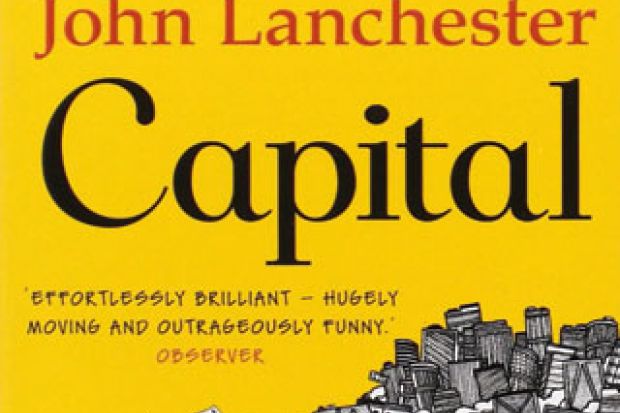Sandra Leaton Gray, senior lecturer in education, UCL Institute of Education, is reading John Lanchester’s Capital (Faber, 2012). “One of my Anglophile friends in Munich was determined I should read this account of the residents in Pepys Road, London, where someone is sending mystery postcards to the residents of each house, saying ‘We Want What You Have’. It’s the literary equivalent of strolling down a street at dusk, looking through lit sitting-room windows and fantasising about the occupants.”

Stephen Halliday, panel tutor in history, Institute of Continuing Education, University of Cambridge, is reading Robert Tombs’ The English and Their History (Allen Lane, 2014). “This is a more than worthy successor to G. M. Trevelyan’s great History of England. It is scholarly, comprehensive and with many fresh insights as well as memorable asides, such as the reference to Neville Chamberlain’s ‘unimaginative brass tacks kind of rationalism’. Riveting.”

A. W. Purdue, visiting professor of history, University of Northumbria, is reading Henry Kissinger’s World Order: Reflections on the Character of Nations and the Course of History (Allen Lane, 2014). “Kissinger begins with the Treaty of Westphalia 1648 in examining the problems of the modern world. He advocates a return to a modified Westphalian system by which nation states compete while recognising the advantage of a balance of power. For the US he recommends modified idealism; a realistic pursuit of essential interests. It is the work of a historian whose knowledge has been tempered by statesmanship and of a European whose outlook is a wise synthesis of that of Middle Europe and his adopted country.”

R. C. Richardson, emeritus professor of history, University of Winchester, is reading Lawrence Goldman’s The Life of R. H. Tawney: Socialism and History (Bloomsbury, 2013). “Stopping far short of uncritical hero worship, this admiring portrait of Tawney as educator, socialist, public servant and historian nonetheless does full justice to a remarkable man, his contemporary influence and legacy. His formative years in adult education and his resoundingly quasi-biblical style are both emphasised, as are his Christian humanism and engagement with the dialectical relationship between past and present.”

Sharon Wheeler, visiting lecturer in journalism, Birmingham City University, is reading David Weston’s Covering Shakespeare: An Actor’s Saga of Near Misses and Dogged Endurance (Oberon, 2014). “The author, a veteran actor, would be the first to admit that his career has never hit the glittering heights. But he’s developed a new string to his theatrical bow with his witty, gossipy books. Covering Shakespeare is a good-humoured trot through the canon, with engaging asides from Weston about his own – and others’ – performances.”

